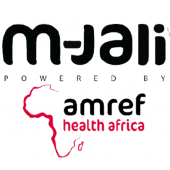It is with a heavy heart that I announce the upcoming shutdown of my website on January 1, 2015. This platform has been a significant part of my life, filled with countless memories, meaningful connections, and shared moments that I will forever cherish. Although this decision was not an easy one, circumstances have left me with no other choice. I want to express my deepest gratitude to everyone who supported me and joined me on this journey. Your kindness and encouragement have meant the world to me. As we part ways, I wish each of you peace, joy, and lasting happiness in your lives.
Thank you for everything.

MJALi Zambia 23.0 APKs
- Version: 23.0
- File size: 17.09MB
- Requires: Android 4.0+
- Package Name: org.amref.mjalizambia
- Developer: Amref Health Africa
- Updated May 20, 2024
- Price: Free
- Rate 4.50 stars – based on 10 reviews
We update the app regularly so we can make it better for you. Get the latest version for all the available MJALi Zambia features. The version includes an additional module, several bug fixes and performance improvements. Early warning disease surveillance system integrated
Mobile Jamii Afya Link (M-Jali) is an innovative platform that seeks to improve management of community health information incorporating a mobile application for capturing data from the household level and transmitting it online to a web-based database. Through this platform, community health units have been able to cut the turn-around time for transmitting data from the point of collection to several points of use from several weeks to a few minutes. CHWs collect data on simple, smart mobile devices during their regular household visits and remit this data to the platform, from where health care workers and health managers can view, retrieve, review and draw inferences to support decision making and planning at all levels of the health sector.
Many factors influence health and well-being in a community, and many entities and individuals in the community have a role to play in responding to community health needs. Critical to this process are performance monitoring activities to ensure that appropriate steps are being taken by responsible parties and that those actions are having the intended impact on health in the community. In Kenya, a robust and well-thought out Community Health Strategy (CHS) prescribes an approach to ensure that Kenyan communities have the capacity and motivation to take up their essential role in health care delivery. The overall goal of this strategy is to enhance community access to health care in order to improve productivity and thus reduce poverty, hunger, and child and maternal deaths, as well as improve education performance across all the stages of the life cycle. This is being accomplished by establishing sustainable community level services aimed at promoting dignified livelihoods throughout the country through the decentralization paradigm. This strategy makes use of Community Health Volunteers (CHVs) who ideally should be equipped with training, capacity and tools to spearhead the health promotion and awareness activities at household level.
As part of the Community Health Strategy, a comprehensive monitoring and evaluation (M&E) approach is outlined as a continuum of observation, information gathering, analysis, documentation, supervision and assessment. The purpose is to keep activities on track towards goals and objectives and to support decision making. Effective M&E is envisioned to contribute to accountability on current activities (reporting and assessing impact) and help improve planning and implementation of future activities. This is collectively operationalized through a formalized Community Health Information System (CHIS), outlining specific indicators that CHWs must collect and observe on a regular basis (monthly, quarterly, biannually and annually).
Consistency, accuracy, timeliness and completeness of data from community level has been the key impediment to the delivery of this strategy and the CHIS framework over the years of implementing CHS. The process has been largely manual, with a few disaggregated pilot initiatives to automate the process, most of which have not achieved scale and adoption. In view of this, Amref Health Africa in partnership with Zambia has developed this platform aimed at improving management of community data using mobile technology.
